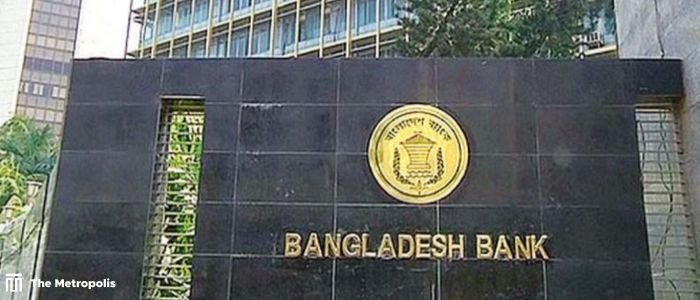Metropolis Desk-
To strengthen seven struggling banks—five of which are Islamic banks—before the year ends, the central bank has extended emergency funding totaling Tk 22,000 crore to them.
The fund was taken for three days on December 28 at a rate of 9.7 percent interest by Islami Bank Bangladesh, Social Islami Bank, First Security Islami Bank, Global Islami Bank, Union Bank, Padma Bank, and National Bank, according to information provided to The Daily Star by Bangladesh Bank officials briefed on the proceedings.
The banks did not have any securities to offer as collateral, so the funds were taken against a “demand promissory note.”
Between a borrower and a lender, a demand promissory note is a legally binding contract. By signing this contract, the borrower guarantees to pay back the loan as soon as it becomes due.
In situations where a bank lacks available bills and bonds to use as collateral, the BB will accept a demand promissory note.
“It is standard procedure to provide loans against demand promissory notes,” BB spokesman Md Mezbaul Haque stated.
He continued, “Banks may borrow from the central bank against the promissory note for a maximum of 180 days.”
The extension of the extraordinary facility, according to BB officials, was made to assist the banks in making up the difference in their required cash and liquidity holdings and present a clean balance sheet for the year.
The officials stated that depositors’ confidence in banks will be severely damaged if they display a shortfall in their regulatory cash and liquidity holdings on their balance sheets at year’s end.
Tarek Reaz Khan, managing director of Padma Bank, which was formerly known as Farmers Bank, stated that the bank received emergency loans from the central bank on Thursday to cover the shortfall in regulatory cash holdings.
He said that the money had been held by the bank for three days.
Officials from BB state that the emergency liquidity support given to the Shariah-based banks—in which Chattogram-based conglomerate S Alam Group holds substantial stakes—is not intended to cover the banks’ current account deficits with the central bank.
As per a November 28 letter from BB to the managing directors of the lenders, there has been a long-standing deficit in the current accounts of Islami Bank, Social Islami Bank, First Security Islami Bank, Union Bank, and Global Islami Bank.
There were twenty working days available to the banks to settle their debts. First Security Islami Bank is currently the only bank experiencing a deficit, and according to BB officials, the bank has been given three months by the central bank to resolve the negative balance.
The managing director of Social Islami Bank, Zafar Alam, stated that the bank’s current account with the BB is no longer in deficit but he declined to comment on the extraordinary lending support provided by the central bank.
The executive director of the Policy Research Institute of Bangladesh, Ahsan H. Mansur, stated that the banks’ boards ought to be changed before providing any liquidity support.
The National Bank’s board was reconstituted by BB on December 21.
The extraordinary liquidity support that those banks require at this time is due to the absence of accountability. The interests of the depositors must come first for the banking regulator to attempt to save the banks. “The Bangladesh Bank is not in the business of giving away people’s money in this manner,” added Mansur, a former BRAC Bank chairman.



